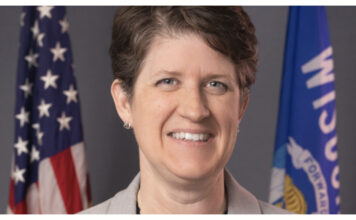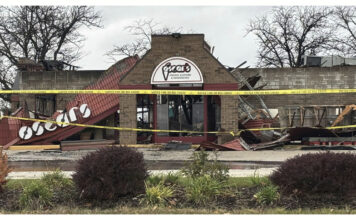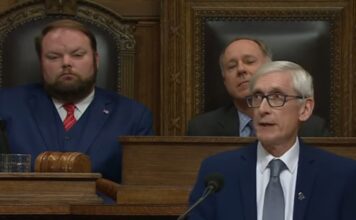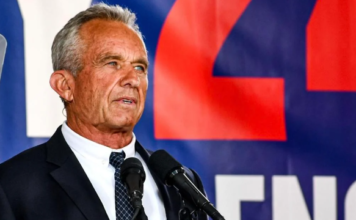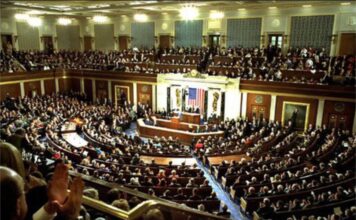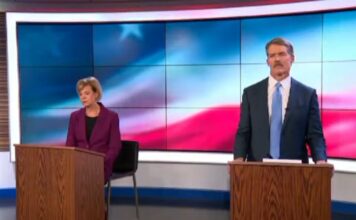By: Samantha Crane
Hamas’s Oct. 7 terrorist attack on Israel has sparked an alarming resurgence of antisemitism on college campuses across the country. As discussions on this growing threat continue, it is important to recognize the double standard that exists when it comes to addressing antisemitism.
On the far right, antisemitism may present itself as a neo-Nazi march or a swastika drawn on a Jewish community center. This typically is understood as antisemitic, met with a swift condemnation and a finger pointed to the far right. While these instances may be more identifiable, it is not the cancer that has spread throughout our university systems.
Rather, it is left-wing antisemitism that dominates college campuses today. At its core, left-wing antisemitism centers around anti-Zionism. Pro-Palestinian rallies praise the events of October 7 and chastise Israel for its “inhumane and disproportionate response” after the murder of 1,200 of its citizens and the kidnapping of 200 hostages.
The left’s antisemitism masquerades as a political ideology and pawns anti-Zionism off as a progressive to garner support from other leftist groups.
However, seemingly, no one wants to be labeled as antisemitic so instead people will try to make the distinction that anti-Zionism is not antisemitism.
But in reality, Zionism is inextricably linked to Judaism. For many Jews, Zionism is, and always has been, an integral part of their Jewish identity. Jews have had a continuous presence in Israel dating back thousands of years, and Israel remains a core aspect of the Jewish religion through both tradition and prayer. For example, Jews pray three times a day facing East toward Jerusalem and end each Passover seder with the words, “Next year in Jerusalem.” This becomes a heavy truth to bear because it means reconciling the fact that one’s disdain towards Zionism is a form of antisemitism
Yet, this is rarely recognized by university leadership. So when students gather on campuses to yell genocidal slogans into a megaphone, rather than a university condemnation of antisemitic activity, Zionism gets shrugged off as a nuanced political issue and anti-Zionist sentiments are left unscathed.
UW-Madison is a prime example of this.
This past fall, right ahead of the Badger football game against Nebraska, onlookers witnessed a group of approximately 20 Neo-Nazis marching down State Street and carrying flags with Swastikas as they headed toward the capitol building.
As images and videos of this scene filled the news, only a few hours later forceful statements denouncing these sentiments came flooding in from Chancellor Mnookin, Governor Evers, Mayor Conway and many others.
While a Neo-Nazi march is deserving of swift condemnation, the sudden influx of statements felt insincere. For weeks following October 7, protests against Israel, both on campus and around Madison, spewed hateful messages, yet, both UW and local government officials remained eerily silent.
This double standard was recently reaffirmed during UW’s handling of the “Gaza Solidarity Encampment” that cropped up at the end of the spring semester. The university allowed students to illegally camp on university grounds for over a week with nearly no consequences.
While protesters erected a Palestinian flag, pitched their tents, and began making demands from the UW administration, Jewish students walked to class listening to their peers chant, “From the river to the sea Palestine will be free” and “intifada, intifada ,”which are more than just catchy slogans, but rather, a call for the genocide of Jews and for a violent uprising against Jews.
Instead of enforcing the law and denouncing these sentiments, UW opted to negotiate with these protesters over their demands in an effort to end the encampment. The University showed nearly no regard for the fact that these protests were, at the very least, creating an unwelcoming environment for its Jewish students.
While the First Amendment protects a broad range of speech, university administration is not barred from distancing themselves from the views shared by these students.
Antisemitism exists on both the right and the left and should be condemned unequivocally regardless of one’s political alignment. Rather than capitulating to a small group of extremists, UW should reaffirm its commitment to maintaining a safe and welcoming home to the ninth-largest Jewish student population in the country.





